Here is the full story on New Zealand’s foreign minister saying the country has to stand up for itself after China warned its call for Taiwan’s participation in the World Health Organization (WHO) could damage bilateral ties:
Worldwide Covid-19 deaths pass 290,000 – as it happened
Spain to quarantine overseas travellers; Trump walks out of press conference; White House staff ordered to wear masks. This blog is now closed
Tue 12 May 2020 19.33 EDT
First published on Mon 11 May 2020 19.30 EDT- Summary
- French schools reopen
- Pence avoiding Trump after aide's positive test
- Summary
- Covid-19 R number falls below 1 in Germany
- Saudi oil profits plunge 25%
- Lebanon orders four-day 'total lockdown'
- Kremlin spokesman in hospital with Covid-19
- WHO says there is "potentially positive data" on Covid-19 drugs
- Summary
- Spain reports fewest daily infections in two months
- Italy to reopen bars and restaurants from next week
- Russia surpasses UK tally with more than 10,000 new cases
- Spain orders two-week quarantine for all incoming travellers from 15 May
- French economic activity down 27% in April
- Russian hospital fire kills coronavirus patients attached to ventilators
- Summary
- UK front pages, Tuesday 12 May 2020
- Summary
- China reports no new domestic infections after weekend spike
- Fauci to tell US senate reopening early risks “needless suffering and death”.
- Japanese Health Ministry to approve antigen coronavirus testing kits
- New York City’s death toll may be 5,000 higher than official toll
- All mosques in Iran to reopen temporarily on Tuesday
- Easing restrictions to boost Australian economy by US$6bn a month
- Summary
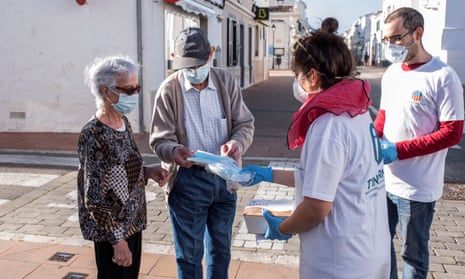
Live feed
- Summary
- French schools reopen
- Pence avoiding Trump after aide's positive test
- Summary
- Covid-19 R number falls below 1 in Germany
- Saudi oil profits plunge 25%
- Lebanon orders four-day 'total lockdown'
- Kremlin spokesman in hospital with Covid-19
- WHO says there is "potentially positive data" on Covid-19 drugs
- Summary
- Spain reports fewest daily infections in two months
- Italy to reopen bars and restaurants from next week
- Russia surpasses UK tally with more than 10,000 new cases
- Spain orders two-week quarantine for all incoming travellers from 15 May
- French economic activity down 27% in April
- Russian hospital fire kills coronavirus patients attached to ventilators
- Summary
- UK front pages, Tuesday 12 May 2020
- Summary
- China reports no new domestic infections after weekend spike
- Fauci to tell US senate reopening early risks “needless suffering and death”.
- Japanese Health Ministry to approve antigen coronavirus testing kits
- New York City’s death toll may be 5,000 higher than official toll
- All mosques in Iran to reopen temporarily on Tuesday
- Easing restrictions to boost Australian economy by US$6bn a month
- Summary
Australian treasurer, Josh Frydenberg, has had an especially ill-timed coughing fit – while delivering an economic update in parliament:
He also touched the despatch box several times between coughing on his hands:
This is excruciating to watch https://t.co/5lIUz0Iz0g
— Patrick Keneally (@patrickkeneally) May 12, 2020
Get in touch on Twitter @helenrsullivan.
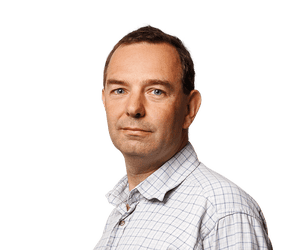
Workers in the gig economy are being exposed to coronavirus infection because the government is failing to enforce EU safety at work regulations, a union has said.
The Independent Workers’ Union of Great Britain (IWGB) has written to the Department for Work and Pensions threatening legal action if the duty of care is not extended to include those who are not employees.
The union, whose members are cleaners, drivers, couriers, foster-care workers and others in non-staff roles, says many are not being provided with personal protective equipment (PPE) or testing for infection.
Summary
- Global confirmed death toll exceeds 285,000. The number of people known to have died since the pandemic began has reached at least 286,330, according to researchers at Johns Hopkins University. They say at least 4,177,584 people are known to have been infected. The figures are likely to significantly underestimate the true scale of the pandemic.
- China reports no new domestic cases after spike on weekend. China reported zero new domestic coronavirus infections on Tuesday, after two consecutive days of double-digit increases fuelled fears of a second wave of infections. A new cluster reappeared over the weekend in the city of Wuhan, where the pandemic first emerged, while the northeastern city of Shulan was placed under lockdown Sunday after another outbreak emerged. On Monday, China’s National Health Commission reported 17 new cases, five of them in Wuhan. Seven of the new cases were imported.
- Easing restrictions to boost Australian economy by US$6bn a month. Once Australia removes most social distancing restrictions by July, its economy will be boosted by AU$9.4bn (US$6.15bn) each month, Treasurer Josh Frydenberg will say on Tuesday in a speech updating lawmakers on his budget planning, Reuters reports.
- All mosques in Iran will reopen temporarily on Tuesday, a further step in the government’s plans to ease restrictions that aimed to contain the spread of the new coronavirus, the official IRIB news agency reported. Mosques will only be open for three days commemorating specific nights for the holy month of Ramadan and it was unclear whether they would stay open, according to the Fars news agency.
- New York City’s death toll may be 5,000 higher than official toll. Between 11 March and 2 May, about 24,000 more people died in the city than researchers would ordinarily expect during that time period, a report by the US Centers for Disease Control and Prevention said. That’s about 5,300 more deaths than were blamed on the coronavirus in official tallies during those weeks.
- The Japanese Health Ministry is set to approve antigen coronavirus testing kits on Wednesday, a ministry official said on Tuesday, in a move to boost the number of diagnostic tests available to battle the pandemic.
- Fauci to tell US senate reopening early risks “needless suffering and death”. The New York Times reported that Dr Anthony Fauci, the leading US expert on infectious diseases and a key member of the White House coronavirus taskforce, will on Tuesday tell the US senate that reopening the economy early risks “needless suffering and death”.
- Trump declared victory over the “invisible enemy” as deaths surpassed 80,000 in the US.“We have met the moment and we have prevailed,” Trump, flanked by ventilators and testing supplies, said during a briefing in the White House Rose Garden on Monday. He later said he was referring to testing.
- Trump accused of racism over press conference comments. The president was criticised for telling an Asian-American journalist to direct her questions on the US’s epidemic to China, instead of to him. Trump insisted he would have answered the question the same way regardless of who had asked it. Trump refused to take further questions and abruptly ended the press conference. CNN’s influential chief media correspondent, Brian Stelter, said Trump’s actions had “racist overtones”, adding: “It’s racist to look at an Asian-American correspondent and say ‘ask China’; it’s part of a pattern from the president.”
- White House staff ordered to wear masks. The White House has directed staff working in the West Wing, where the daily operations of Donald Trump’s administration are carried out, to wear masks. With Trump’s valet and vice-president Mike Pence’s press secretary both testing positive for the virus last week, pressure is growing for the White House to take further steps in protecting the health of country’s 73-year-old president.
- The World Health Organization says “extreme vigilance” is needed as countries begin to exit lockdowns imposed to curb the virus’ spread. The warning comes after Germany reported an acceleration in new infections after easing its lockdown, and South Korea, another country that succeeded in limiting infections, saw a new outbreak in nightclubs.
- Boris Johnson denies reports his senior scientific and medical advisers were not consulted on the new messaging attached to his plan to ease the country’s lockdown as he set out the details in parliament. Amid muddled guidance from ministers on what the new rules actually allow, Johnson insists the public understands his government’s message.
- “No guarantee” of vaccine, UK’s PM says. There is no guarantee of a Covid-19 vaccine, says the British prime minister, Boris Johnson, but he adds that the UK is heavily involved in the work to develop one.
- Germany has reported an acceleration in new infections after taking early steps to ease its lockdown. South Korea, another country that succeeded in limiting infections, has seen a new outbreak in nightclubs.
- Putin eases Russia lockdown despite infection surge. The Russian president announces an easing of the nationwide lockdown, even as the country sees a record number of new infections.
South Korean authorities said Tuesday they were using mobile phone data to trace Seoul nightclub visitors as they try to tackle a coronavirus cluster, promising anonymity to those being tested due to the stigma surrounding homosexuality, AFP reports. Homosexuality is not illegal in South Korea, but rights groups say discrimination is widespread.
The country has been held up as a global model in how to curb the virus, but a spike of new cases, driven by the cluster in venues in Seoul’s Itaewon district – including several gay clubs – forced authorities to delay this week’s planned re-opening of schools.
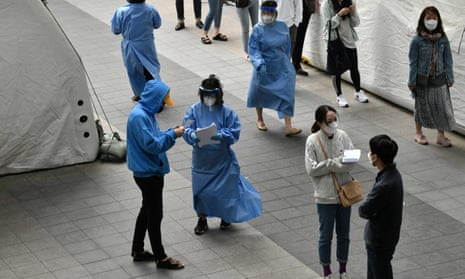
Many nightclub customers are believed to be reluctant to come forward because of the stigma surrounding homosexuality in the socially conservative country. Seoul, as well as its neighbouring Gyeonggi province and the nearby city of Incheon, and the southern city of Daegu, have ordered the closure of all clubs and bars.
As of Tuesday morning, 101 cases had been linked to the Itaewon cluster, Seoul mayor Park Won-soon told reporters.
The city secured a list of 10,905 people who visited the district through data provided by mobile operators and has sent text messages asking them to get tested, he added.
The Korea Disaster Management Headquarters said nearly 2,000 people who are believed to have visited the clubs are currently unreachable, and thousands of police will be deployed to track them down.

Relief mixes with anxiety as New Zealand eases lockdown
Anticipation is building among New Zealanders as an easing of the strict coronavirus lockdown rules approaches, but not everyone is relishing the prospect of re-entering society after months confined to their homes.
New Zealand has been in a stringent lockdown for seven weeks and on Thursday most restrictions will be loosened, allowing people to go back to work and school, to shop, eat in restaurants and go to the cinema, playground or library.
Prime Minister Jacinda Ardern said her “team of 5 million” sacrificed normality to protect the nation’s most vulnerable people – including the elderly and immunosuppressed – but now restrictions can begin to loosen as health authorities gain control of the disease. The country reported no new cases or deaths on Tuesday.
While many are relishing the prospect of resuming their normal lives – and economists are sighing with relief that the economy can kick back into life – a small sense of anxiety is growing among some at what will be a very altered version of New Zealand’s “normal”.
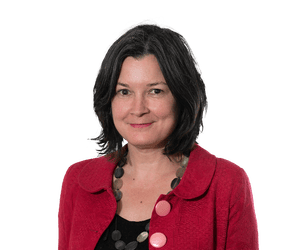
‘It’s a very different Ramadan’: how coronavirus has upended rituals in Australia
Mufti Zeeyad Ravat is an Islamic scholar, an authority on the day-to-day practice of Islam. His path to Australia was a circuitous one, from his birthplace in Johannesburg, South Africa, through India, Syria (where he studied Arabic), Brazil, Brisbane and Melbourne. In March last year, he travelled to New Zealand to lead a prayer service in Christchurch after 50 worshipers at a mosque were slaughtered.
Ravat, 39, is a bundle of energy, his arms waving to make a point, one leg tucked underneath him on a recliner in his home in Dandenong in south-east Melbourne. The everyday noise of family life (he is married with five children) break through from the next room as he explains how important Ramadan is, and how the coronavirus pandemic has upended its rituals.
China reports no new domestic infections after weekend spike
More now on China’s cases from AFP:
China reported no new domestic coronavirus infections on Tuesday, after two consecutive days of double-digit increases fuelled fears of a second wave of infections.
China has largely brought the virus under control, but it remains on edge, fearful that a second wave could undermine its efforts to get the economy back up and running.
A new cluster reappeared over the weekend in the city of Wuhan, where the pandemic first emerged, while the northeastern city of Shulan was placed under lockdown Sunday after another outbreak emerged.
On Monday, China’s National Health Commission reported 17 new cases, five of them in Wuhan. Seven of the new cases were imported.
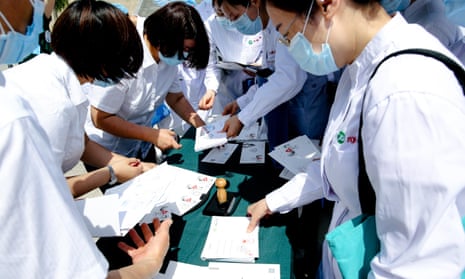
A day earlier, China announced the first double-digit increase in nationwide cases in nearly 10 days, saying 14 new infections had been confirmed. Wuhan also saw its first new case in over a month.
For the 27th consecutive day, there were no deaths reported. One imported case was recorded.
The country’s official death toll remains at 4,633, while the total number of infections in the mainland is 82,919.
New Zealand’s foreign minister on Tuesday said the country has to stand up for itself after China warned its backing of Taiwan’s participation at the World Health Organization (WHO) could damage bilateral ties, Reuters reports.
Taiwan, with the strong support of the United States, has stepped up its lobbying to be allowed to take part as an observer at next week’s World Health Assembly (WHA), the WHO’s decision-making body – a move which has angered China.
Taiwan is excluded from the WHO due to the objections of China, which views the island as one of its provinces.
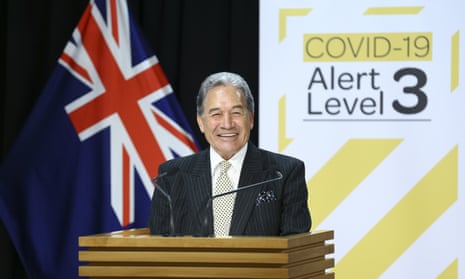
Senior ministers in New Zealand last week said Taiwan should be allowed to join the WHO as an observer given its success in limiting the spread of the novel coronavirus, drawing China’s ire which asked the Pacific country to “stop making wrong statements”.
“We have got to stand up for ourselves,” Winston Peters, New Zealand’s foreign minister, said at a news conference when asked about China’s response to New Zealand’s position on Taiwan.
“And true friendship is based on equality. It’s based on the ability in this friendship to nevertheless disagree.”
Peters said he did not think the issue would harm diplomatic ties with China, which is New Zealand’s biggest trading partner.